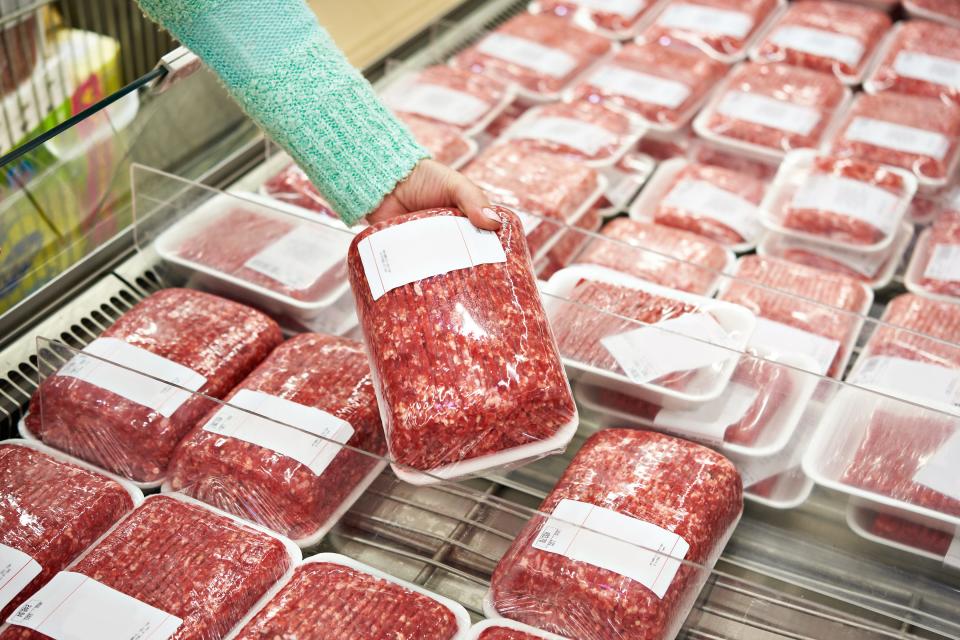Are your burgers safe from bird flu? USDA offers cooking safety tips for Memorial Day
It's not a burger anyone would want at their Memorial Day barbecue. But a virus-filled test patty made the menu for federal health researchers this week, injected with a not-so-delectable strain of bird flu. Officials put the ground beef to the test − on a grill, under lab-safe conditions − to encourage consumers to cook their burgers a bit longer amid the ongoing bird flu outbreak.
The lab tests found that retail ground beef cooked to at least medium − meat with an internal temperature of 145 degrees − was safe. Grilling bird flu-infected burgers at medium killed the H5N1 avian influenza. In patties cooked at lower temperatures, including juicy medium-rare ones that clocked in at 120 degrees, the virus remained present in small amounts, federal health officials announced at a news conference Thursday.
Overall, officials emphasized beef is safe if you heat it sufficiently on the grill. Nationally representative samples of beef, officials said, did not appear to show traces of the virus.
“I don’t think that anybody needs to change any safe meat handling or any safe meat practices,” Dr. Eric Deeble, an acting senior adviser for bird flu at the U.S. Department of Agriculture, told reporters in a call Thursday. He added that the USDA has long recommended cooking ground meat, including beef, a bit hotter, to an internal temperature of 160 degrees, which is well done."
The latest findings were part of “scientific inquiry” to further understand how bird flu could enter into the food supply, Deeble said. He added the retail samples the lab team injected with the virus and cooked included ground beef from around the U.S.
Global public health: WHO's top scientist sounds alarm about bird flu and need for vaccine development

Containing the spread of bird flu in cattle
After one Texas farm worker tested positive for bird flu in March, officials began working to contain any possible spread of the disease. The worker was the second U.S. case, following the infection of a man incarcerated at a Colorado prison in 2022. Health officials have said they believe the risk to human health is low.
Bird flu this year is thought to have spilled over from wild birds to cattle in the Texas Panhandle in late 2023, said Dr. Rosemary Sifford, chief veterinary officer and deputy administrator of veterinary services at USDA. Officials since then have been trying to limit the movement of herds to prevent the further spread of bird flu, which has appeared in nine states and affected 46 herds. Officials are continuing to test for the virus at farms across the U.S. On Thursday, Deeble, the USDA senior adviser, said officials “strongly suspect” the transmission of bird flu from cow to cow can occur from tools used for dairy milk production, including towels, wipes, spray bottles, milking heads and other items that come in direct contact with animals.
In early May, the USDA announced results from retail ground beef samples. All 30 of the samples − from retail outlets in states with dairy cattle herds that tested positive for bird flu − tested negative for the virus, indicating safety has prevailed in the meat supply, according to an announcement. Additional research is looking at whether the virus is present in beef muscle sampled from slaughtered dairy cows that appeared to have pathological respiratory illnesses, akin to the symptoms of bird flu. These tests involved cows in states where herds tested positive for H5N1. The results are forthcoming, USDA said.
Officials also responded to concerns about raw milk consumption and the misconception that drinking raw milk helps build immunity to bird flu. Officials have said when milk is heated during pasteurization it kills pathogens such as H5N1. Raw milk that hasn’t gone through pasteurization does not offer any protection against the virus if it is present.
Dr. Nirav Shah, principal deputy director at the U.S. Centers for Disease Control and Prevention, said it's "erroneous" to think that drinking raw milk will protect you. “There are there are much safer ways to protect oneself, namely avoiding raw milk.”
USDA also announced its investing $22.2 million toward research for preparedness, early detection and rapid response to diseases that threaten U.S. livestock.
This article originally appeared on USA TODAY: Are your burgers safe from bird flu? Hot grilling tips from USDA.

